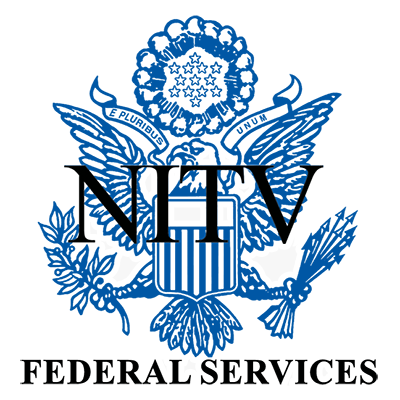
CVSA®
Computer Voice Stress Analyzer®
Most accurate truth verification technology
Free and unlimited technical support
World’s only patented voice stress analyzer
The CVSA is sold only to law enforcement/government agencies.
The CVSA is now used by over 3,000 law enforcement agencies. The CVSA is the most accurate truth verification technology world-wide. Contact us today for details.
Annual Conference – Professional Development and Continuing Education for CVSA Examiners
January 26-30, 2026
Early bird tuition discount ends August 1, 2025

Frequently Asked Questions
What is the CVSA®III and how is it different from the CVSA®II?
The CVSA® III Instrument is the latest version of the CVSA®, and builds upon the overwhelming success of the CVSA® II by incorporating numerous upgrades and new features. The CVSA® III is housed in a custom configured MILSPEC Dell Rugged 14 designed for Law Enforcement and Military applications. With the CVSA® III there is no need to customize or pay extra for the most versatile VSA system available on the market today.
The new CVSA® III Instrument is the only VSA system in the world featuring a custom Windows 10 Operating System developed specifically for the CVSA® to meet the demanding operational and security needs of our clients. The CVSA® III’s custom Operating System is certified and licensed by Microsoft, and factory installed by Dell.
- Due to its custom Windows OS, Microsoft classifies the CVSA® III system as an “instrument,” not a commercial notebook computer containing “off-the-shelf” VSA software.
- With the new CVSA® Windows 10 OS there is no concern about CVSA® data being inadvertently transferred to the cloud – unlike other VSA systems that use consumer-grade Windows 10 Operating Systems.
- The new CVSA® Windows 10 OS is designed to provide the longest-term and most stable Windows 10 Operating System available. Microsoft pledges a minimum of 10 years support for this OS.
The CVSA® III incorporates familiar User Interfaces all CVSA® Examiners have been trained and certified to use – there is no need for additional training.
The CVSA® III system has been completely modernized and upgraded by our US Engineering and Software Development Team for ease-of-use, increased system performance, reliability, precision, accuracy and security.
The FACT® scoring system, now the FACT® Plus, has been upgraded using machine learning algorithms to provide the highest-level of scoring precision available from any VSA system in the world.
The new CVSA® III features instantaneous voice graphing – eliminating intermittent graph lag that exists in consumer-grade VSA systems.
The new CVSA® III features enhanced system stability – meaning virtually no need for technical support.
The new CVSA® III features multiple language options for worldwide operations.
The new CVSA® III features world class security – including a specialized security key, which is available upon request when extra protection is required. (Available for a nominal fee.)
The new CVSA® III Instrument contains many other upgrades to ensure ease of operation by all examiners, both new and seasoned.
What is difference between the FACT® Plus and the original FACT®?
FACT® is an acronym that stands for Final Analysis Confirmation Tool, and remains the only validated VSA scoring system in the world. The FACT® scoring system, now called the FACT® Plus, has been upgraded using machine learning to provide the highest-level of scoring reliability and precision available from any VSA system worldwide.
The FACT was developed as the result of a lengthy and extensive research and development undertaking, encompassing thousands of hours of laboratory and field testing. The FACT® Scoring System uses advanced processes and a built-in “learning” feature to recognize, evaluate, categorize and quantify the output graphs from the CVSA®. Extensive testing and validation trials of the first-generation FACT® demonstrated an accuracy rate consistently exceeding 96%, with a false-positive rate of less than 0.7%. The FACT Plus improves upon this already exceptional level of accuracy, and has demonstrated accuracy rates above 98%, with a false-positive rate of less than 0.5%.
NITV Federal Services re-invests a large portion of its budget into research and development to ensure our products remain on the leading-edge of truth verification technology. Our commitment to Excellence in Technology, Training and Service® ensures the CVSA® will remain the leading Truth Verification instrument in the USA, now and in the future.
Will there be new versions of the CVSA® available in the future?
Yes, in fact NITV Federal Services is constantly working to improve the various versions of the CVSA®. In the future, as new technical and innovative developments are made to the CVSA®, they will be offered to our clients.
Does the CVSA® have a warranty?
Yes, NITV Federal Services offers an unlimited warranty and unlimited support for all our software products. Additionally, we work closely with our business partners and suppliers to ensure that warranties for hardware platforms which house the CVSA® software exceed industry standards. For instance, all of our Dell-based products offer a 3-year on-site warranty, accident protection and 24-hour support.
How many organizations use the CVSA®?
As of 2024, there are over 3,000 local, state, federal and International law enforcement/security agencies using the CVSA®. Additionally, NITV Federal Services has trained hundreds of US Military personnel. The CVSA® is currently being used under combat-conditions in military theaters worldwide. View More
What questions should I ask a Truth Verification vendor before purchasing a Truth Verification System?
Click here to download a list of questions.
Why does the polygraph community continue to provide false and misleading information about the voice stress analysis technology when over 2,900 U.S. organizations, including many major law enforcement agencies, use the CVSA?
For decades US Government polygraph proponents, with the assistance of various polygraph organizations, have overwhelmed US law enforcement with questionable “studies” wrongly touting the polygraph as a scientifically valid instrument for determining truth and deception. Further, the primary backer of the polygraph – the US Federal Government, ensured for decades the polygraph and its supporters had a virtual “lie detection” monopoly in the US. A cottage industry of private polygraph examiners, private polygraph schools, academics and government bureaucrats burgeoned across the US based on this federally-supported monopoly. As with any monopoly, abuses against private citizens soon became common due to the unscrupulous practices of those the polygraph industry allowed within its ranks. Based on these abuses, Congress passed the Employee Polygraph Protection Act (EPPA) of 1988, which was signed by President Reagan. The EPPA significantly limits the use of polygraphs in the private sector.
In the US alone, dozens of private polygraph schools teach conflicting methods for administering polygraphs, which has led to turmoil and a weakening of polygraph support by US law enforcement. Additionally, the numerous developers of polygraph devices, each trying to outdo the other, developed non-standardized instruments and peripherals, some of which have been found to be defective or highly inaccurate. Discrepancies in training, examination methodologies and instrumentation have led to a crisis in the US polygraph community, which is now under fire from those inside and outside the US Government. In fact, in recent years the US Government has spent tens of millions of taxpayers’ dollars researching more effective techniques to determine truth and deception – which is a de facto admission by the US Government of the polygraph’s inadequacies.
Returning to the questionable studies hyped by polygraph proponents, in a landmark 2003 study the US National Academy of Sciences lambasted the so called “scientific” basis of the polygraph by stating unambiguously the majority of polygraph research was “unreliable, unscientific and biased,” concluding that over 70% (57 of 80) of the research studies frequently cited by US polygraph proponents were significantly flawed. The US Supreme Court echoed this sentiment when it ruled 8-1 against allowing polygraph evidence in state and federal courts, observing: “There is no consensus in the scientific community that polygraph evidence is reliable.”
Despite what those in the polygraph industry claim, in recent years US Government research has validated the human voice as being the most accurate channel for detecting truth and deception. The BORDERS project is just one example of the US Government’s support of using voice technology for credibility assessment. The list of independent, peer-reviewed, and published studies supporting the precision, reliability and accuracy of voice stress analysis technology continues to grow, while use of the polygraph by US and international law enforcement agencies continues its precipitous slide.
There is a simple reason polygraph proponents continue to attack voice stress analysis technology – namely because it works as stated and it is driving the polygraph out of business in the US, jurisdiction-by-jurisdiction. If the CVSA was not a threat to the polygraph industry they would ignore it, as they do all other forms of truth verification that compete with polygraph. In the US alone, there are over 3,000 law enforcement agencies using the CVSA daily to solve crimes. Worldwide there are over 3,600 agencies using the CVSA. In fact, within the US, only a handful of US Federal agencies, primarily those within DOD and DOJ, are required to use the old polygraph based solely upon antiquated “polygraph only” directives. These directives are subject to being repealed with the stroke of a pen, which many believe will happen in the future due to the continued high-profile failures of the polygraph. This includes the polygraph’s inability to detect Edward Snowden and Aldrich Ames as national security threats.
As for the CVSA, it is less than 1/6 of the cost of polygraph, is far more accurate, and is three time more efficient than the polygraph. These facts are easy to verify – simply obtain a quote for a CVSA and training, and then get a quote for a polygraph and training. You will quickly learn the fabrications provided by the polygraph industry are not limited to fake price comparisons.
Don’t be tricked by the “unreliable, unscientific and biased” sales pitches being put forth by the pro-polygraph lobby. Investigate the CVSA for yourself and learn why the CVSA is the most widely used truth verification instrument in the world today.
What do top US scientific experts say about the use of the polygraph by the US Government?
According to a Bloomberg article that appeared in August 2015, even the most respected polygraph experts agree the polygraph is a blunt instrument when used for security screening, which is the predominant polygraph application of the US Government. Psychologist Dr. Charles Honts has conducted many of the studies that polygraph advocates cite. The Boise State University professor and former U.S. Department of Defense polygraph instructor and researcher states the way the US federal government employs the polygraph to screen for security clearances “causes me discomfort.”
“The test works best, Honts argues, when the questions are about specific events. Job screening questions, however, tend to be broad: “Have you committed serious crimes that went undiscovered?” or “Have you had unauthorized contact with a foreign national?” The difficulty is compounded, he says, in looking for spies or aspiring Edward Snowdens. “There are hundreds of thousands of people who work in the federal government who need security clearance,” he says. “How many people working for foreign governments apply for those jobs? If you’re looking for something that only occurs one-tenth of 1 percent of the time, running a test that’s 90 percent accurate doesn’t help you.” Depending on where you set your threshold, you either miss most of the spies or you cast suspicion on tens of thousands of innocent people. Sometimes you do both.
We don’t know how many good people we lose, and we don’t know how many bad people have gotten through and haven’t gotten caught,” Honts says. “And we don’t know whether the polygraph is at all predictive of either of those outcomes.”
To read the full Bloomberg article click here.
Redefining Truth Verification: Join Us on an Exciting Journey
Explore our cutting-edge training and technology and be part of this innovative journey towards truth and credibility.
